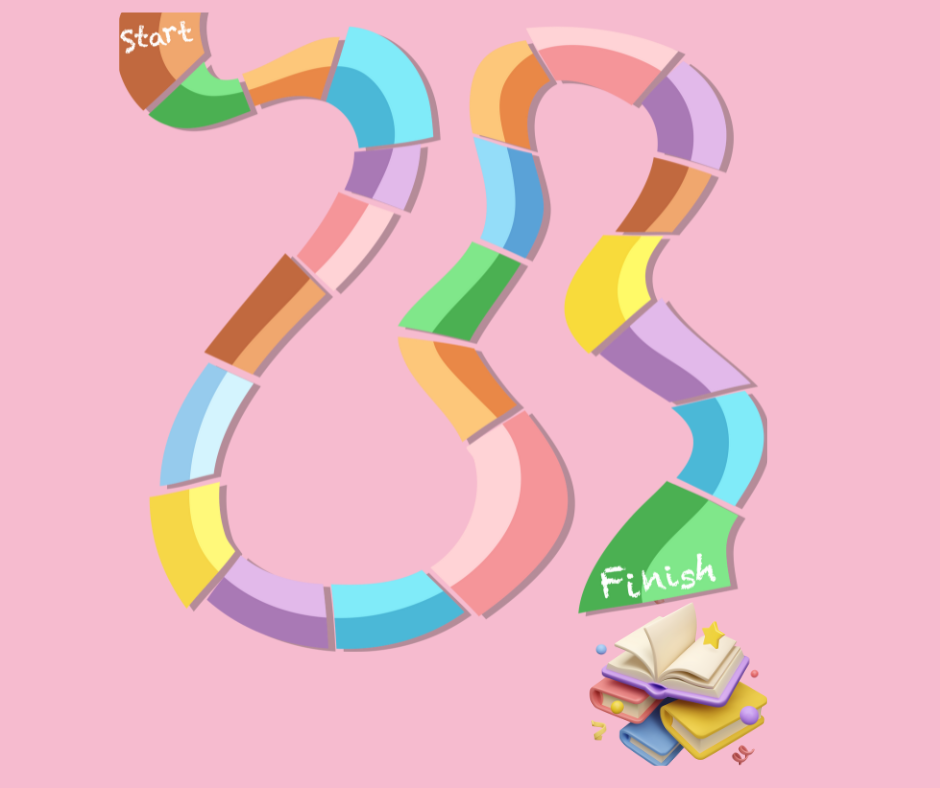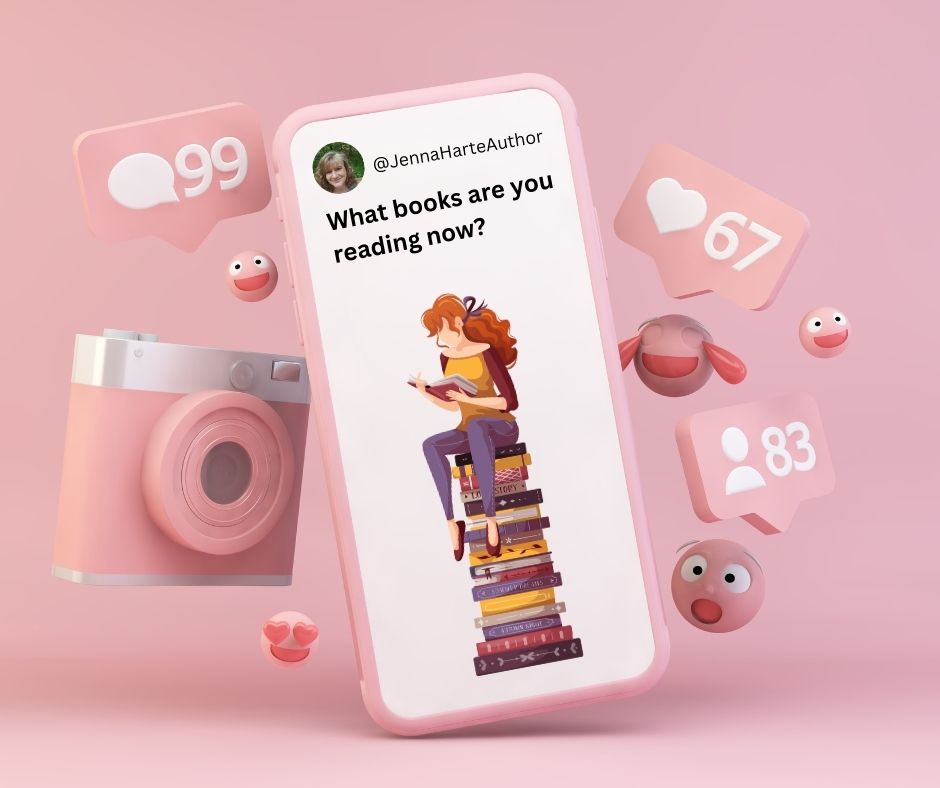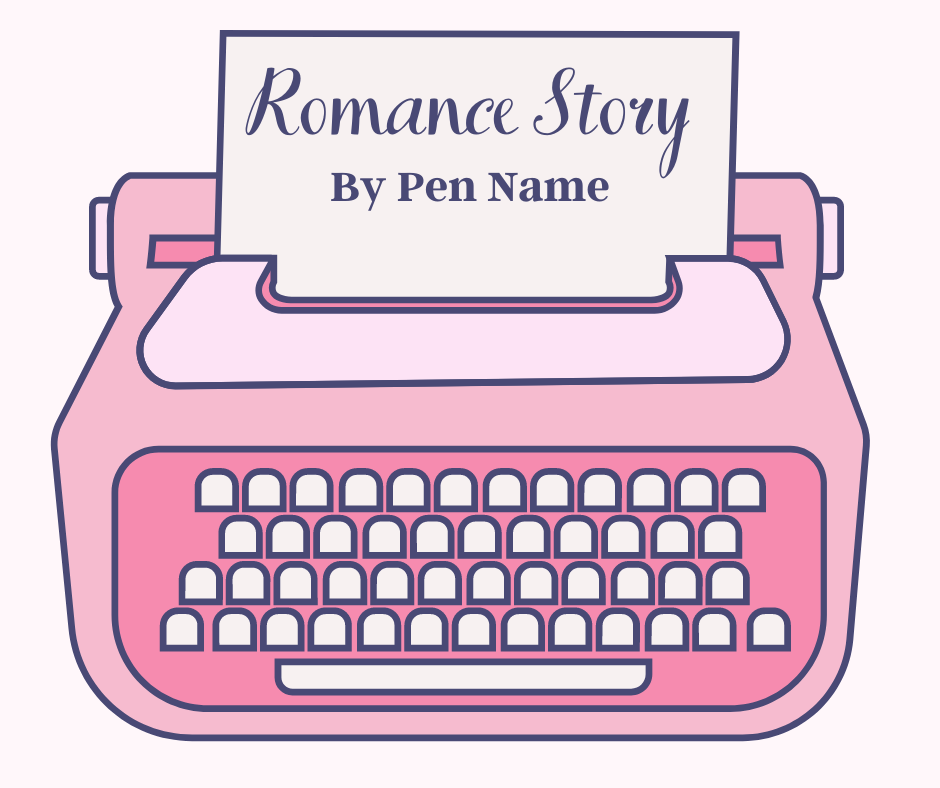How to Add Humor to Your Romance Novel

Table of Contents
Who doesn’t love a good laugh, especially when it comes wrapped in a swoon-worthy romance? Whether it’s a witty one-liner, a hilariously awkward situation, or a character’s endearing quirks, humor can add that extra sparkle to a love story.
Humor in romance isn’t just about making readers laugh, though that’s definitely part of it. It’s also about deepening the emotional connection between the characters, creating relatable moments, and sometimes, breaking up those intense scenes with a well-timed joke. Whether you’re going for light and breezy or a more subtle, dry wit, adding a touch of humor can make your love story truly unforgettable.
So, how can you sprinkle that magic into your own writing? Here are a few tips:
Understanding the Role of Humor in Romance
You don’t have to be writing a romcom to have humor in your romance novels. Even dark romances have moments of levity. Let’s explore how humor can work in every type of romance novel.
Building Emotional Connection
Humor has a unique way of bridging the gap between characters and readers. When a character makes a witty remark or finds themselves in a funny situation, it’s easier for readers to see them as real, relatable people. Laughter, after all, is a universal experience. When readers laugh with your characters, they’re more likely to empathize with them, cheer for their happy ending, and remember them long after they’ve finished the book.
Breaking Tension
Romance often involves moments of high emotion, whether that’s heartfelt confessions, passionate disagreements, intense internal struggles, or even danger. While these scenes are crucial for driving the story forward, they can sometimes become overwhelming if not balanced with lighter moments. That’s where humor comes in. A well-placed joke, a funny misunderstanding, or a lighthearted exchange can diffuse tension, giving both the characters and readers a moment to breathe. This balance between tension and relief not only keeps the story from becoming too heavy, but also makes the emotional peaks feel even more impactful.
Highlighting Character Traits
Humor is also an excellent way to showcase your characters’ personalities. A character’s sense of humor—or lack thereof—can reveal a lot about them. For instance, a hero with a dry, sarcastic wit might come across as guarded or cynical, while a heroine who laughs at her own clumsiness might seem endearing and down-to-earth. Through humor, you can highlight your characters’ quirks, flaws, and unique perspectives, making them more complex and three-dimensional. This not only adds depth to your characters but also makes them more relatable and lovable to your readers.
Types of Humor to Consider
Adding humor to your romance novel can be like seasoning a dish—you want just the right amount to enhance the flavor without overpowering the main ingredients. Luckily, there are several types of humor you can sprinkle into your story to keep your readers smiling and engaged.
Situational Humor
Ever found yourself laughing out loud at a character’s predicament? That’s situational humor at work! This type of humor arises naturally from the plot or character interactions. Maybe your heroine accidentally shows up to a fancy dinner in her yoga pants, or the hero ends up stuck in an elevator with his ex. These funny scenarios don’t feel forced because they stem from the story itself, making the humor feel authentic and relatable. Plus, these moments often reveal a lot about your characters and how they handle unexpected situations.
Think of Lucy in the chocolate factory. Bridget Jones’ Diary is filled with situations in which Bridget is out of her element or her quirky behavior makes her stand out.
Dialogue-Driven Humor
I love banter! Dialogue-driven humor comes from the clever, playful, or sometimes downright snarky exchanges between characters. Whether it’s a flirty back-and-forth between love interests or a sassy remark from a best friend, sharp dialogue can add sparkle to your story. It’s also a great way to showcase the chemistry between characters, making their connection feel more dynamic and real. The key is to keep the banter light and natural—like a verbal dance that’s fun for everyone involved.
Here is an example from The Thin Man (yes, it’s a mystery, but I love the banter between Nick and Nora, and whoever else they’re talking to).
Reporter: Say, is he working on a case?
Nora: Why, yes –
Reporter: What case is it?
Nora: A case of Scotch. Go in and help him.
Physical Comedy
Think awkward situations or those laugh-out-loud moments where a character’s physical actions take center stage. Maybe your hero trips over his own feet while trying to impress the heroine, or the heroine has a hilariously disastrous first attempt at cooking dinner. Physical comedy can add a layer of lightheartedness to your story, especially when things get a bit too serious. Just be sure not to overdo it—a little clumsiness can be endearing, but too much can tip into slapstick territory.
Satire and Parody
If you love playing with romance tropes, satire and parody might be your go-to humor style. This involves gently poking fun at the clichés we all know and love (or sometimes love to hate) in the romance genre. Maybe your characters are fully aware they’re caught in a “fake relationship” trope and make jokes about it, or you exaggerate a well-known romance scenario to highlight its silliness. This type of humor not only entertains but also invites readers in on the joke, making them feel like insiders in the world of romance fiction.
Self-Deprecating Humor
There’s something charming about a character who can laugh at themselves. Self-deprecating humor allows your characters to poke fun at their own flaws, mistakes, or situations. Maybe your heroine jokes about her bad luck in love, or your hero admits he’s hopeless at cooking with a sheepish grin. This type of humor makes characters feel more down-to-earth and relatable, helping readers to root for them even more. It’s also a great way to show personal growth, as characters who can laugh at themselves are often the ones who learn and evolve throughout the story.
Crafting Humorous Characters
I really enjoy having quirky characters in my books. Often they’re side characters such as Jack Valentine’s grandmother Cora. But sometimes even my main characters have some humorous quirks, such as Sophie Parker in my cozy mystery series.
The Comedic Relief
Every great romance can benefit from a secondary character who brings the laughs. This is the friend, sibling, or co-worker (or in my case octogenarian relatives) who adds a dash of humor to the mix without stealing the spotlight from the main couple. Think of the best friend who always has a sarcastic comment ready or the quirky neighbor who’s full of bizarre advice. These characters can lighten the mood during more serious moments and provide a counterbalance to the tension in the main romance. The key is to make sure they enhance the story rather than overshadow it, adding just the right amount of humor to keep things fun.
The Featheringtons offer this in the Bridgerton series.
The Witty Protagonist
Who doesn’t love a lead character with a sharp wit? Whether it’s a heroine with a quick comeback for every situation or a hero who uses humor to mask his vulnerabilities, a witty protagonist can add layers to your story. This type of character keeps readers on their toes, making interactions lively and unpredictable. Their humor can also be a tool for character development, revealing hidden depths or insecurities as they use humor to navigate tricky situations. A protagonist with a dry sense of humor or a playful attitude can make your romance not just sweet, but also smart and engaging.
Elizabeth Bennet offers this sort of wit.
The Lovable Fool
Sometimes, it’s the character who’s a bit clumsy, naive, or just plain goofy that steals our hearts. The lovable fool is the one who stumbles into awkward situations, makes endearing mistakes, or has a charmingly naïve outlook on life. Think Bridget Jones. Their humor comes from their innocence or their ability to laugh at themselves, which often makes them incredibly relatable and endearing to readers. This type of character can serve as a perfect foil to a more serious love interest, balancing out the story with moments of lightheartedness and warmth. Their blunders and quirks don’t just add humor—they also make them incredibly human and lovable.
Tips for Writing Effective Humor
Writing humor can be one of the most enjoyable parts of crafting a romance novel, but it can also be tricky to get just right. Humor is subjective, and what makes one person laugh might not have the same effect on another. However, with a few tips and some thoughtful practice, you can make sure your humor lands just as you intend it to. Here’s how to make your funny moments truly shine.
Know Your Audience
The first step in writing effective humor is understanding who you’re writing for. Different readers have different tastes when it comes to humor. Some may appreciate clever wordplay and witty banter, while others might enjoy more slapstick or situational comedy. Consider the tone of your novel and the demographic of your readers—what kind of humor will resonate most with them? For example, if you’re writing a light, contemporary romance aimed at a younger audience, you might include more pop culture references or playful sarcasm. On the other hand, a more mature audience might prefer subtler, more sophisticated humor. Tailoring your humor to your target readers ensures that it enhances their reading experience.
Know Your Humor Style
While some people might be viewed as funny (e.g. Robin Williams), nearly everyone has at least a base-level sense of humor. To be funny without seeming like you’re trying too hard, you need to find your own style of humor. What sorts of humor do you gravitate to when you read or watch TV/Movies? I love comedy, but I’m not a fan of potty humor unless it’s coming from a six-year-old boy (6-year-olds love the word “butt”.).
What sorts of things do you say or do that make people laugh? Do you tell stories about situations or your childhood? Are you self-deprecating? Are you good with puns or wordplay?
Have Fun with Cliches
Comedy can come from offering the unexpected to conventions. Let’s face it, romance is filled with genre and trope cliches that you can use to poke fun. In my book, Wed to You, when Jagger proposes a marriage of conveniences, Chelsea’s first thought is “who does that except in romance novels?” It’s a wink at how silly this trope is while still fulfilling the expectations of the trope.
Life is Stranger than Fiction
My mom and sister often tell me about names or situations they’ve come across that they think will be great for a book. Real life is a great place to mine funny content. For example, my step-father tells stories about growing on a farm in rural Pennsylvania. He often talks about Junior Junior, who is Junior’s son. This, of course, made it into a Sophie Parker book (as did a handful of other names).
Because my stories take place in rural Virginia, moonshine makes a appearance every-now-and-then. I used it in Meant to Be in which Mitch tells Sydney that he’s bought home-brewed moonshine (illegally made) from a guy that sells it from the jail parking lot. This idea came from my hubby telling me how a guy he knows sells moonshine from the trunk of his car in the parking lot of a prison.
Sometimes the funniest situations come from everyday life. Keep a notebook or have a file on your phone where you can record these funny stories, jokes, or whatever makes you smile or laugh.
Catch the Reader Off Guard
Sometimes humor comes from subverting the expected pattern using the element of surprise. Many comics use the rule of three for this purpose in which they give a normal statement, add another element that makes sense, and then a third that’s crazy. For example:
“He’s great at cooking, cleaning, and avoiding commitment.”
“All I wanted was a quiet evening, a good movie, and my cat to stop judging my life choices.”
Read Widely
One of the best ways to improve your humor writing is to read other romance novels that effectively use humor. Pay attention to how other authors incorporate humor into their stories—notice the timing, the style, and how the humor fits into the overall narrative. What types of humor make you laugh? How do they build the romantic tension or reveal character traits?
Note that you don’t have to read solely romcoms to learn about humor in writing. By studying a variety romance novels, you can gain inspiration and insight into what makes humor work in different contexts. This not only helps you develop your own style, but also broadens your understanding of how humor can enhance a love story.
Here are examples that showcase how humor can enhance a love story.
Classic Romance with Humor
Let’s start with the OG of romance humor, Jane Austen and her most famous story, Pride and Prejudice. In all of her books, Jane pokes fun of society in a subtle yet cutting way, and you can see it best in Pride and Prejudice. It starts with the opening line, “It is a truth universally acknowledged, that a single man in possession of a good fortune, must be in want of a wife.”
Here are a few more:
“An unhappy alternative is before you, Elizabeth. From this day you must be a stranger to one of your parents. Your mother will never see you again if you do not marry Mr. Collins, and I will never see you again if you do.” Mr. Bennet, Pride and Prejudice
“What are men to rocks and mountains?” Elizabeth Bennet, Pride and Prejudice
“For what do we live, but to make sport for our neighbors, and laugh at them in our turn?” Elizabeth Bennet, Pride and Prejudice
But you don’t have to go back that far to find “historical” romances with humor. Julia Quinn’s Bridgerton series is famous not just for its swoon-worthy romances, but also for its sharp wit and humorous dialogue.
Similarly, Georgette Heyer, often hailed as the queen of Regency romance, was a pioneer in blending humor with romance. Her novels, like The Grand Sophy, are filled with clever repartee and amusing situations that make the romantic journey light-hearted and fun.
Contemporary Romance with Humor
Before the official term “romcom” there were humorous contemporary romance novels. Some started out in “chick-lit” (now usually called women’s fiction), such as Bridget Jones’ Diary by Helen Fielding or the Shopaholic series by Sohpie Kinsella.
Personally, I feel like Susan Elizabeth Philips is the OG of the contemporary romcom. Her Chicago Stars series often have a quirky female lead and humorous situations.
Another OG is Jennifer Crusie, who has a Janet Evanovich vibe (did you know Janet wrote romance too?). I can’t remember which book it was, but Jennifer had a sexy bit that had issues as they knocked over a lamp and struggled with the act. It was the first time I read a spicy scene in which not everything went smoothly.
Another standout is Talia Hibbert, whose Brown Sisters trilogy combines steamy romance with plenty of laugh-out-loud moments. Her characters are quirky, real, and often hilariously self-aware, making the humor feel fresh and contemporary. Novels like Get a Life, Chloe Brown show how modern romance can be both sexy and funny, with humor that feels authentic and relevant to today’s readers.
Here are some examples of humor in darker romances.
JR Ward’s Black Dagger Brotherhood has breaks of humor, especially from the fallen angel Lassiter. Vishous and Butch’s bromance is funny at times as well.
JD Robb’s In Death books have a good amount of humor mixed in with the gritty darkness of police procedural crime. I love Eve and Roarke’s relationship, especially the banter. Eve also has no clue about metaphorical statements, often saying them wrong.
Eve: “Don’t climb on your golden horse with me, Roarke. Don’t you even start.”
Roarke: “That would be high horse, Lieutenant.”
From Vengeance in Death
Roarke: “You need more sleep.”
Eve: “Skillet, pan.”
Roarke: “What?”
Eve: “You know, the skillet says the pan’s the same deal.”
Roarke: “I believe that’s the pot calling the kettle black.”
Eve: “Whatever, kitchen stuff can’t talk anyway.”
From Indulgence in Death
Eve: “Business is dog eat cat, right?”
Roarke: “Dog.”
Eve: “I said dog.”
Roarke: “Dog eat dog.”
Eve: “That’s just stupid. Dogs eat cats. Everybody knows that.”
Roarke: “I stand corrected. Business is dog eat cat.”
Eve: “Like I said.”
From Delusion in Death
Balancing Humor with Romance
While humor can be fun, it’s important to strike the right balance so that the love story remains at the forefront. Too much humor at the wrong time can overshadow the romance, but when used well, it can enhance the emotional depth of your story. Here’s how to keep that balance just right.
Timing is Everything
In romance, timing isn’t just crucial for love—it’s also key to landing the perfect joke. Well-placed humor can lighten the mood during a tense moment or bring a smile after an emotional scene, but it’s important not to disrupt the romantic flow. For example, a funny line right after a heartfelt confession might dilute the emotional impact, while a humorous exchange during a lighter scene could deepen the connection between characters.
Tone Consistency
Humor should feel like a natural part of your story, not something that jars the reader out of the world you’ve created. This means matching the style and level of humor to the tone of your novel. If you’re writing a light-hearted, breezy romance, you can play with more overt, playful humor. On the other hand, if your story has a more serious or dramatic tone, a subtler, more refined wit might be a better fit. Keeping the humor consistent with your story’s overall tone ensures that it complements the romance, rather than clashing with it.
Avoiding Overkill
As much as we love to laugh, too much of a good thing can start to feel overwhelming or repetitive. Using humor sparingly helps keep it fresh and impactful. If every page is filled with jokes, the humor can lose its punch and distract from the romantic storyline. Instead, let the funny moments shine by spacing them out, allowing readers to savor the humor while staying invested in the love story. Remember, in romance, the emotional journey of the characters should always be front and center, with humor playing a supportive, enriching role.
Be Careful with Snarky Leads
Snark can be fresh and funny, but too much of it can turn readers off. This is especially true of main characters. If everything out of their mouths is snark, it may annoy readers and make the character unlikable.
Practice and Revision
Even the most naturally funny people can benefit from revising their humorous scenes. Writing humor is an art, and like any art, it gets better with practice. When you’re drafting a scene intended to be funny, don’t worry if it doesn’t feel perfect right away. Humor often improves with revision. Try rephrasing jokes, tweaking timing, or tightening up dialogue to make the humor sharper and more effective.
It’s also helpful to read your scenes aloud or share them with a trusted reader to see if the humor lands as you intended. Sometimes what seems funny in your head doesn’t translate on the page, and that’s where revision becomes your best friend.
Remember that you don’t have to write a romcom to infuse your story with humor. Even in the darkest romances, there is often bits of humor to add relief from the tension and give characters more depth.
Do you have other tips for writing funny? Let me know in the comments below.






Responses